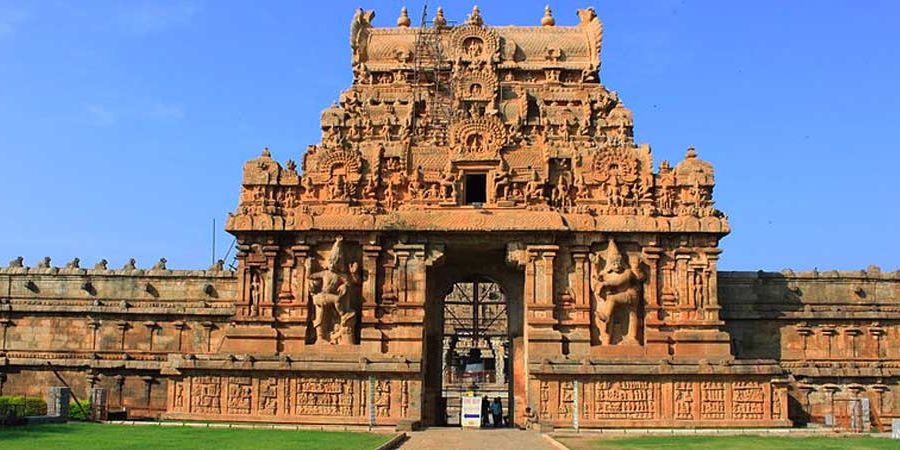

Initial Documentation :
The Chola dynasty's origins are not well documented in history. However, they are described in early Tamil literature as well as one of Ashoka's Pillars (273-232 CE). They are mentioned in historical Greek and Roman texts as well. The royal family, however, was of the Tamil ethnic group.
By 300 CE, the Pallava and Pandya kingdoms wielded considerable power in the Tamil heartlands. Under the new powers, Cholas were forced to serve as sub-rulers. They retained their influence in the region, however, as women from the Chola dynasty were frequently married into the Pallava and Pandya dynasties.
Chola Period in Mediaeval India :
Around 850 CE, the Pallava and Pandya kingdoms went to battle. The Cholas took advantage of this chance, and King Vijayalaya seized Thanjavur (Tanjore). He declared it the Chola empire's new capital. The occurrence marked the start of the mediaeval Chola period, when they were at the pinnacle of their dominance.
Aditya I (the son of King Vijayalaya) destroyed the mighty Pandyan kingdom in 885 and established the Pallava dynasty in 897 CE. The Cholas extended their authority to Sri Lanka during his son's reign (925 CE). By 985 CE, the Cholas controlled the whole Tamil-speaking territory of Southern India. The subsequent kings, Rajaraja Chola I and Rajendra Chola I, expanded the empire much farther.
Expansion :
During Rajaraja Chola's reign, the Chola kingdom began to evolve into a multi-ethnic trade behemoth. The empire spread into the Kalinga area of north-eastern India. The Chola fleet went on a rampage in the Maldives and along the Malabar coast. The regions were important stops along the Indian Ocean trading route.
By 1044, Rajendra Chola had conquered the rulers of Bihar and Bengal, expanding further north, pushing the borders to the Gangers river (Ganga). The Cholas had gained control of coastal Myanmar, the Andaman and Nicobar Islands, Indonesia, and the Malay peninsula, making them the first Indian-based marine empire. The Chola kingdom expanded under Rajendra, exacting tributes from as far away as Siam (now Thailand) and Cambodia. The Cholas fostered a significant amount of cultural and artistic interchange between Indochina and the Indian continent.
The Chola kingdom was not without difficulties. The Chalukyas, who ruled over the western Deccan Plateau during the mediaeval time, continuously challenged their dominance in the region and waged wars with them to obtain power. The Chalukya empire finally fell in 1190 after failing to combat the Cholas. But it was also time for the Chola empire to fade away!
The Demise :
The historic enmity between the Cholas and the Pandyas had not subsided. Between 1150 and 1279, the Pandya family raised an army and waged multiple wars for independence. The Cholas were finally overthrown by the Pandyas in 1279, and they perished for good!
The Chola empire was critical to the Tamil legacy. During their reign, Tamil literature and poetry experienced a golden age. The stately Thanjavur temple and stunning artworks in the shape of beautiful metal statues were architectural marvels of the period. In the grand scheme of things, these aesthetic and cultural entities became a vital component of the Southeast Asian artistic lexicon, influencing religious art and literature from Cambodia to Java.
The Chola empire will be remembered as another another kingdom that left an indelible mark on the region and the people it ruled over. The exploits of the Chola kings and warriors are very much part of local legend in Tamil Nadu, where the Cholas ruled for the greatest amount of time, and absorb the core spirit of Tamil Nadu!
